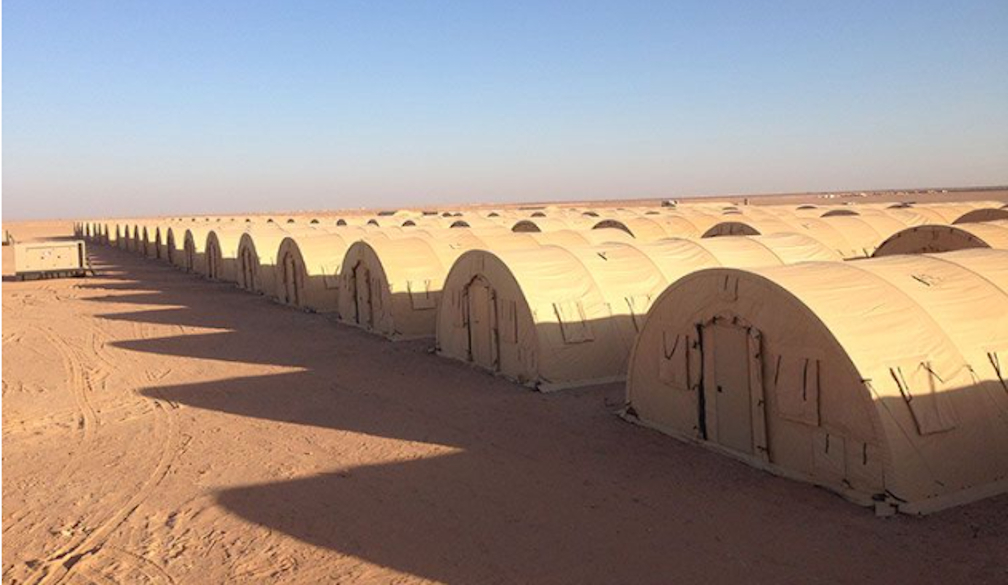The Parable of the Glass Tower
- Written by Mark J. Chironna, PhD.

This story is a modern parable about how integrity can fade in public life and why it’s important to remember the roots of freedom.
In the city of Concordia, people took pride in their hard work and believed in their own goodness. At the city’s heart stood the Glass Tower, its clear walls shining by day and glowing at dusk. The Tower was both a real landmark and a symbol of open, honest government. The founders built it carefully and carved a message at its base that every child learned by heart:
Authority is stewardship. Law is a restraint. The people are the light.
For generations, people took the inscription seriously. They brought it up in arguments, reminding each other that power is a responsibility, not something to own.
When Minister Valor took charge, the crowd cheered. He spoke with confidence and inspired those nearby. He promised to restore Concordia’s greatness. 'The Glass Tower,' he said, 'will protect us and show our strength.' He spoke about unity and the need to make tough choices. Many people felt comforted by his certainty, but not many noticed that it was replacing true thoughtfulness.
Valor appointed Madame Concord as spokesperson. Her tone was calm, her speech deliberate, her face reassuring. “The Tower stands for you,” she said. “It is your light, your strength, your home.” She smiled and promised all would be well if everyone trusted the process. City screens repeated her message each evening until her words became lullabies.
Curtains went up on the upper floors, supposedly for security. It seemed harmless enough. Soon after, guards appeared at the doors to 'protect transparency.' The reasons were unclear, but people didn’t question it. They thought doubting the decision was impolite.
Judge Reason, known for her precision and strong sense of duty, was the first to speak up. She cautioned that if laws become too flexible, they lose their meaning, voicing her concern for the future of justice. Minister Valor, aiming to avoid disruption and maintain harmony, thanked her for her years of service and quietly moved her to a smaller courtroom in a distant area. He explained it was to make her job easier, seeking to ease potential conflict within the court. The people agreed with his decision because they trusted Valor’s leadership. Many thought Reason was past her prime and no longer aligned with the direction they desired.
In a quiet city corner, Archivist Truth tended public records. He guarded council minutes, charters, and Concordia’s ideals. One morning, officials boxed the archives for digitization. “The new system is more efficient,” they said. “It eliminates dust, paper, and confusion.”
Later, digital files contained only summaries. Whole paragraphs had vanished. The language was softened. “Simplified for clarity,” explained the notice on the screen. Truth protested and received a message reminding him that context was “a privilege of access, not a public right.”
People kept trusting the Tower, comforted by how it looked. They started to believe that just seeing the Tower meant the government was open. Citizens kept up with voting and public events but only criticized obvious corruption in other places. In Concordia, corruption was quiet and seemed normal.
In the marketplace, Citizen Mercy, who ran a small bakery, noticed that conversations had changed. People still talked but seldom listened. They repeated slogans more than ideas. When she asked about the curtains on the Tower, a customer told her to “trust leadership.” Another whispered that questions were unpatriotic. A third advised her to focus on her business if she wanted to keep it.
That evening she wrote a simple question on the city’s public network: Why has the Tower drawn the curtains? The replies came within minutes. Some accused her of aiding the city’s enemies. Others said she was spreading fear. By morning her account was suspended for “disrupting civic harmony.”
Minister Valor started something called The Renewal of Unity, saying it would bring people together. Citizens put up tower-shaped stickers to show support, and they glowed at night. No one was forced to join, but people who didn’t display the stickers lost business and permits. It wasn’t required, but not joining came with a cost.
Public life started to feel like a show. Businesses hung banners to show they agreed with the leaders. Officials all wore the same pins and repeated Minister Valor’s message that strength and unity were the same thing. Even people who disagreed began to use the same words, first as a joke, then out of habit.
A group of young journalists began looking into the Tower’s financial practices, but their publication was shut down for supposed tax violations. In a similar case, students who held a protest for transparency lost their funding because of security concerns. Although these events seemed unrelated at first, together they pointed to a pattern of silencing dissent.
Archivist Truth, desperate, projected the founding inscription on the side of a building one night: Authority is stewardship. Law is restraint. The people are the light. By morning, the words had been removed. Officials called it vandalism.
Minister Valor appeared on national broadcast that evening. “Our unity is stronger than ever,” he declared. “The light burns brighter than ever. Do not listen to those who would divide us.” Behind him, the Tower gleamed, though it no longer reflected the sky. It reflected only itself.
The next summer, a heatwave hit the city. Power went out, communication broke down, and supplies ran short. People were used to following orders, but no one told them what to do. The Tower, full of mixed messages, stopped giving real leadership. Officials blamed outsiders, but some people started to wonder if the Tower had ever stood for anything real.
One night, an earthquake struck and shattered the Glass Tower. By morning, it had collapsed, its pieces scattered across the square. What was once a symbol of honesty and civic pride fell apart because it was weak, both in structure and in spirit.
People gathered quietly, not cheering or mourning, but simply stunned. Minister Valor and Madame Concord were nowhere to be found, and some wondered if they had run away or were hiding in the ruins.
In the days that followed, the city was strangely quiet. Without official messages, people started talking openly again, first carefully, then more boldly. Citizen Mercy reopened her bakery, Judge Reason came back, and Archivist Truth returned to protect the old inscription.
He placed it on a broken step of the Tower and read it aloud. His voice was old but clear.
“Authority is stewardship.”
He paused, letting the words hang in the air.
“Law is restraint.”
The crowd leaned closer.
“The people are the light.”
The crowd listened in silence. As they heard the words, a sense of civic awareness that had been missing for so long started to return.
A young boy asked, “How did we forget?”
Judge Reason answered, “We mistook reflection for transparency.”
Archivist Truth added, “We confused repetition with memory.”
Citizen Mercy said quietly, “We called our silence peace.”
The boy thought for a moment. “Will we rebuild the Tower?”
Truth shook his head. “No,” he said. “This time we will build a courtyard. No walls, no curtains, no heights to climb. A place where the light can pass through us instead of being trapped above us.”
The city built a shared open space in the center. The founding words were carved into stone on the ground, where everyone could see them. People played, argued, and performed there, bringing new life to the city.
Over time, a small open space grew in the city’s heart. The inscription was set in stone on the ground, easy for all to read. Children played, people debated, and artists performed there. The city felt alive again.
When foreign visitors asked why there were no monuments, the guides simply said, “We had one once. It taught us too much.”
Years later, an old man sat on a bench in the courtyard and talked to some students. 'The real danger,' he said, 'isn’t just that those in power get greedy. Greed has always been around. The real risk is when people get tired. Authoritarianism doesn’t happen overnight. It grows when we choose comfort instead of doing what’s right, when we pick efficiency over caring, or order over honesty.'
He pointed toward the open sky. "Freedom is not maintained by towers, no matter how transparent. It is maintained by memory and vigilance. The moment we begin to see only our own reflections in our institutions, the glass begins to darken again, and true transparency is lost."
The students wrote down what he said. Some would remember, some would forget. But for that afternoon, Concordia was truly awake.
When those in power forget their limits, they don’t admit to being corrupt. Instead, they use grand words and wait for people to get tired. When citizens give up thinking for the sake of comfort, it’s a quiet but deadly trade. The Tower in Concordia didn’t fall because of an enemy, but because people stopped caring.
No society is safe from being fooled by its own image. Every generation has to choose: do we want to look good, or do we want to be honest with ourselves? That choice decides if our towers, real or not, will last or fall.
And so, every generation returns to the same question:
How much light can we bear to see?
Every generation faces its own version of the Tower, the urge to choose control over thinking about what’s right. This story looks at what happens when we forget to question ourselves and how that puts freedom at risk.
Glossary Of Names And Their Meanings
Minister Valor
Valor means bravery, courage, and the willingness to face danger.
Minister Valor represents the seductive face of authority. He is the kind of leader who appears courageous, decisive, and principled. Yet his valor is performative. His courage serves ego rather than conscience.
The name is meant to be ironic. Valor speaks the language of strength while building systems of fear. He weaponizes certainty to disguise moral weakness. He convinces the people that firmness is the same as integrity, that command is the same as leadership.
In many societies, authoritarianism does not initially manifest as overt tyranny but rather through the personality of a charismatic figure who cloaks control in the rhetoric of courage. Minister Valor is that figure, the embodiment of power that believes itself noble while quietly forgetting its limits.
Madame Concord
Concord means harmony, agreement, and social peace.
Madame Concord personifies the soft machinery that sustains power: propaganda, media spin, and the illusion of unity. She is the soothing voice that tells citizens everything is fine.
Her name points to her role as the harmonizer of dissonance. While Minister Valor enforces authority, she rationalizes it. She represents the bureaucratic face of compliance, the systems and personalities that make control seem compassionate.
Her calm reassurances help people stay untroubled. When she says, “The light is inside,” it sounds gentle but does not really mean anything. In this way, she makes it easier for people to ignore their concerns.
Madame Concord’s name also plays on the tragedy that true concord, real harmony, cannot be achieved by suppressing truth. Artificial peace is purchased at the cost of freedom.
Judge Reason
Reason denotes rational discernment, justice grounded in logic and principle rather than passion or popularity.
Judge Reason stands for the judiciary, for the rule of law, for the rational conscience of the polity. She believes that law must restrain power, not serve it.
Her gendered title, Judge Reason, evokes balance: she is measured, careful, and deliberate. She does not oppose Minister Valor in temperament but in substance. Her demotion signifies what happens when the intellectual and legal checks on power are dismissed as obstruction.
Reason’s reassignment to a “smaller courtroom” symbolizes the marginalization of reasoned discourse itself. When power fears scrutiny, reason is exiled to the periphery. Her eventual return after the collapse of the Tower mirrors the restoration of clarity and due process once illusion is stripped away.
Citizen Mercy
Mercy means compassion, empathy, the humanizing instinct that moderates justice.
Citizen Mercy represents the everyday person, not the intellectual or the elite, but the moral conscience of the ordinary. Her bakery situates her among the people. She feeds others. She listens.
Her choice to ask, “Why has the Tower drawn the curtains?” embodies the innocent question that power fears most, a question born not of ideology but of moral curiosity. Her silencing reflects how authoritarian systems always begin by shaming compassion as weakness.
Mercy’s presence grounds the parable in humanity. When she reappears at the end, reopening her bakery and speaking the simplest truths, it is she who restores the possibility of community. The heart returns before the law does.
Archivist Truth
Truth is both literal and moral. The archivist preserves the record of what has been said and done.
Archivist Truth is the custodian of memory. He represents both history and journalism, both fact and integrity. His loss of access to the full archives symbolizes the erasure and rewriting of collective memory under regimes of convenience.
The transformation of his archives into “summaries” is a metaphor for propaganda; history simplified until it no longer convicts. His projection of the founding inscription across the building is a final act of witness: truth can be suppressed but not destroyed.
When Truth carries the original inscription from the ruins, he performs the act of recovery every free society must repeat. He is the keeper of conscience, the one who remembers what others wish to forget.
The City of Concordia
Concordia comes from the Latin for “with one heart.” It implies unity, peace, and social harmony.
The city acts almost like a character in its own right. Even its name reveals a longing for harmony, but this can be confused with true well-being. Concordia values peace above integrity, and those in charge take advantage of this by offering order while quietly taking apart justice.
When the Tower collapses, Concordia must learn that unity without truth is not peace but paralysis. The rebuilding of the city as a courtyard instead of a tower marks the transformation from false concord to authentic community.
The Glass Tower
Transparency, visibility, accountability, fragility.
The Tower represents institutional power: government, church, corporation, any structure that claims to act for the public good while often serving itself. Glass is chosen deliberately. It allows light to enter but can easily be mirrored or darkened.
The Tower’s shift from transparency to reflection embodies the moral drift from governance to performance. When the Tower ceases to reflect the sky and begins to reflect itself, it has become self-referential power, a system no longer accountable to reality.
Its collapse “under its own weight” symbolizes the inevitability of self-consuming authority. Power built on reflection cannot sustain itself because it no longer admits the light that would keep it true.
The Founding Inscription
Authority is stewardship. Law is a restraint. The people are the light.
The inscription distills the philosophy of a healthy republic.
-
Authority is stewardship, which means that power exists to serve, not to possess.
-
Law is a restraint that reminds leaders that justice must limit ambition.
-
The people are the light reasserts that moral and civic illumination rise from below, not above.
When the inscription is forgotten, the social covenant collapses. When it is rediscovered and placed on the ground rather than elevated on a tower, the people reclaim ownership of their own principles.
The Courtyard
An open space for gathering, listening, and seeing one another at eye level.
The courtyard is the antithesis of the Tower. It is horizontal, not vertical. It holds no hierarchy, no hidden chambers, no curtains. Light moves through it freely.
The shift from tower to courtyard marks the moral reformation of the city. Concordia’s citizens learn that truth is not maintained by structures that rise above them but by relationships that connect them. The courtyard becomes a living metaphor for participatory democracy, implying vulnerability, openness, and being sustained by attention rather than spectacle.
The Unnamed Child and the Question
The child is innocence, curiosity, and renewal.
Every generation is represented by that simple question, “Will we rebuild the Tower?” It expresses the tension between nostalgia and reform. The child’s question invites the adults to consider what kind of future they truly want.
When Truth answers that they will build a courtyard instead, it signals a transformation from inherited habit to conscious choice. The child ensures that the story remains open-ended. Renewal is always possible but never automatic.
© 2025 Mark J. Chironna
https://www.markchironna.com/












